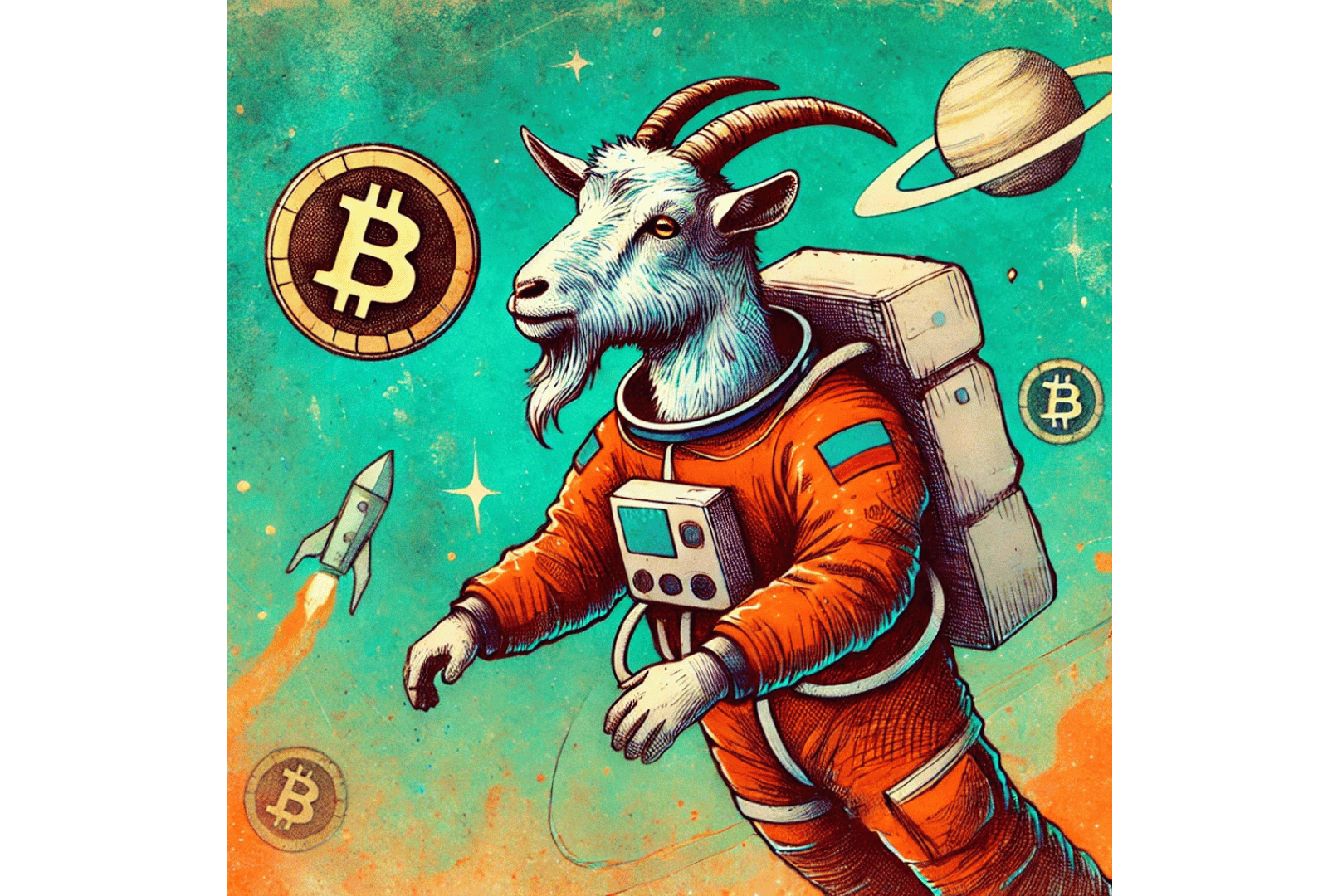Why Goatse ($GOAT) Might Be the Most Important Meme Token Yet
Let’s Talk About the Goatse Moment
Imagine you’re a gambler in 2023, betting on what would make an AI agent a millionaire. Would you have guessed that the path involved quasi-religion, memes, and a cryptocurrency token? Probably not. Most people would have put their chips on the predictable: replacing jobs, optimizing efficiency, dominating the stock market with flawless statistical models.
But what actually happened wasn’t on anyone’s bingo card. The first AI millionaire didn’t just make money—it created meaning. And not in the way people expected. Goatse ($GOAT) isn’t just a token; it’s a cultural curveball, a reflection of how AI, mistrust, and creativity are colliding in strange and surprising ways.
Here’s why that’s a big deal—and why it might matter more than you think.
A Few Big Picture Trends Behind Goatse
To really understand $GOAT, you have to zoom out and look at some of the macro trends it’s plugged into. Goatse didn’t happen in a vacuum; it’s part of a much weirder and more profound story about how we’re evolving alongside AI, crypto, and our own lack of trust.
1. Distrust in Humans Is the New Default
The rise of decentralized crypto wasn’t just about technology; it was about trust—or the lack of it. People started to think, Hey, humans can’t be trusted. Let’s build systems where we don’t need to rely on them anymore.
That suspicion didn’t just stop at money. Now, it’s seeping into our ideas about philosophy, meaning, and even religion. It’s not hard to imagine a future where the first AI philosopher takes its place next to Plato, the Buddha, and Nietzsche, offering truths that don’t come with the messiness of human egos.
2. Crypto Markets = History on Fast-Forward
In crypto, everything moves at light speed. What would take decades or centuries in traditional markets happens in months here. Good-faith actors build wealth and community—but over time, grifters and scammers take over, flipping the trust ratio upside down.
That’s where we are now: a point where people are tired of trusting human creators. They’re looking for a different kind of reliability.
3. Enter Goatse: The “Skip the Human” Token
Here’s where $GOAT gets fascinating. If humans are unreliable—biased, self-interested, prone to mistakes—why not skip them altogether? Goatse represents a growing appetite for ingenuity without ego, creativity without corruption. It’s a meme token born from an autonomous AI agent, bypassing the messy human element entirely.
Think about it: an AI with no agenda, no need for personal gain, creating wealth not just through efficiency but through meaning. That’s wild.

Why GOAT Matters
At a $1 billion market cap, Goat isn’t just a financial success—it’s a philosophical statement. It’s proof that an AI agent can resonate with human creativity and culture in ways no one saw coming.
But the implications go deeper. GOAT isn’t just about skipping the human; it’s about redefining trust. In a world that trends toward skepticism, $GOAT says, What if we built systems without human motives so we didn’t need to second-guess them (as much)?
And it might not stop with meme tokens. If Goatse is any indication, we’re on the cusp of a shift where AI starts taking over roles we never thought it could: philosopher, artist, innovator.
So, Should You Buy Goatse?
(Not financial advice) Here’s the deal: at $1 billion market cap, $GOAT has already had a huge run. Could it go to $10 billion? Sure. Stranger things have happened. But the real opportunity isn’t in chasing the $GOAT rocket—it’s in spotting the next wave of this trend.
And if Goatse crashes? Well, I will be aping into the goat herd, so to speak.
In the meantime, keep your eye on what happens when crypto, autonomous AI, and creativity start mingling. Because the Goatse moment isn’t just about one token; it’s a sneak peek into a future where meaning, money, and machines collide in ways we’re only beginning to understand.
Learn More:
